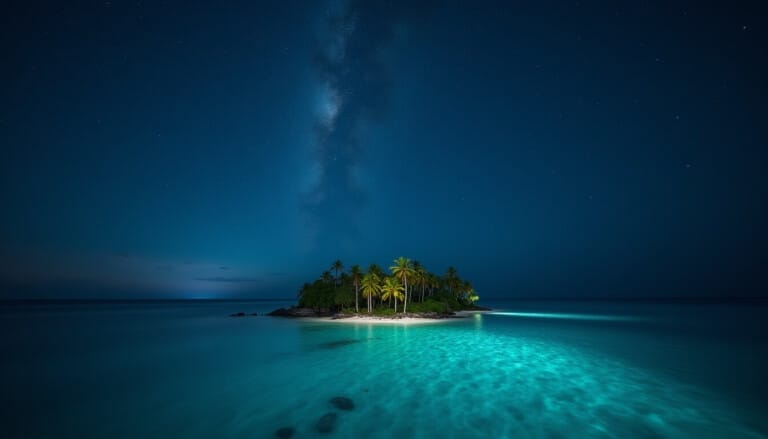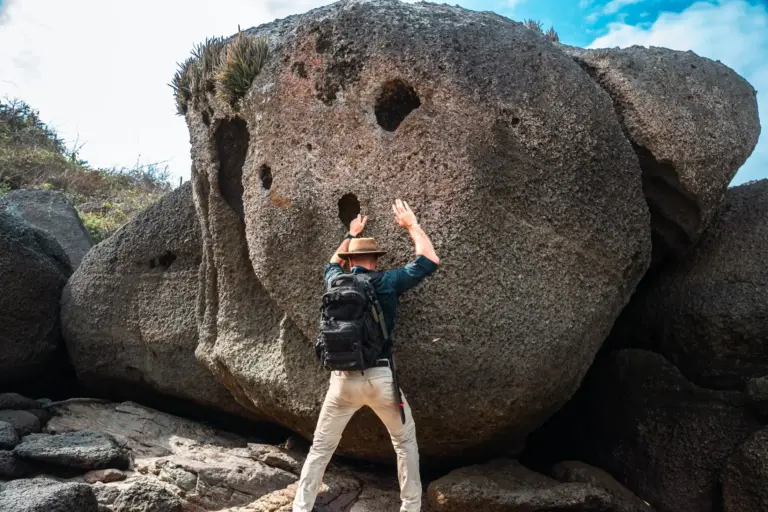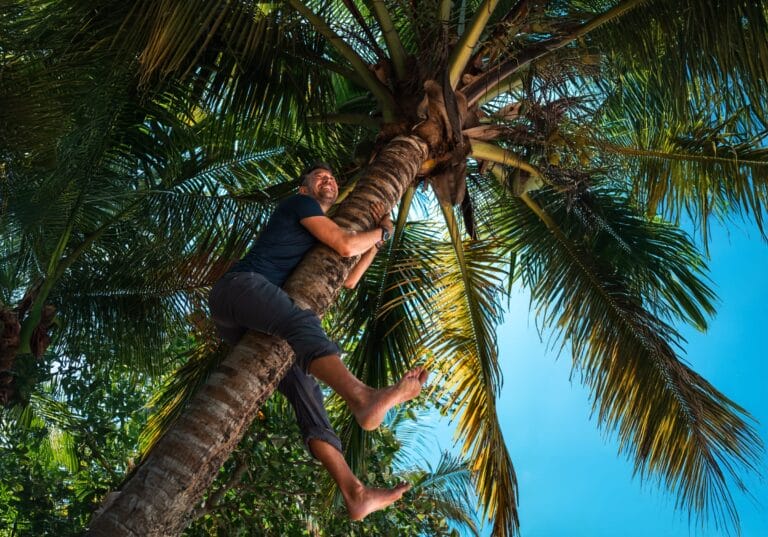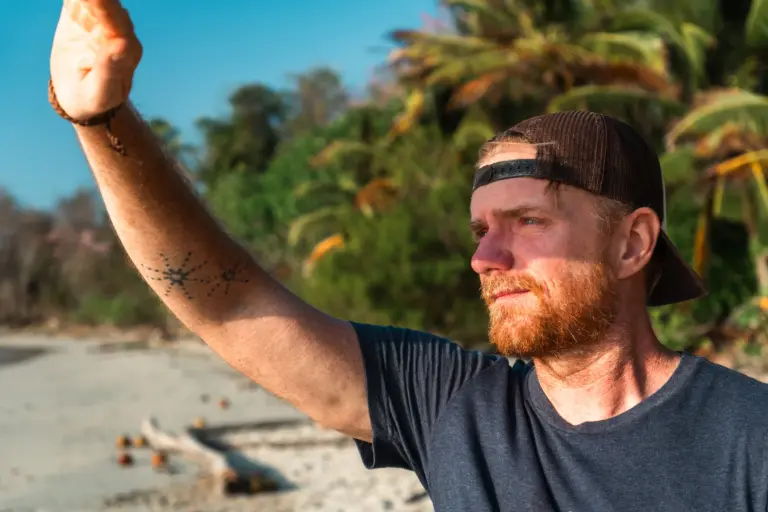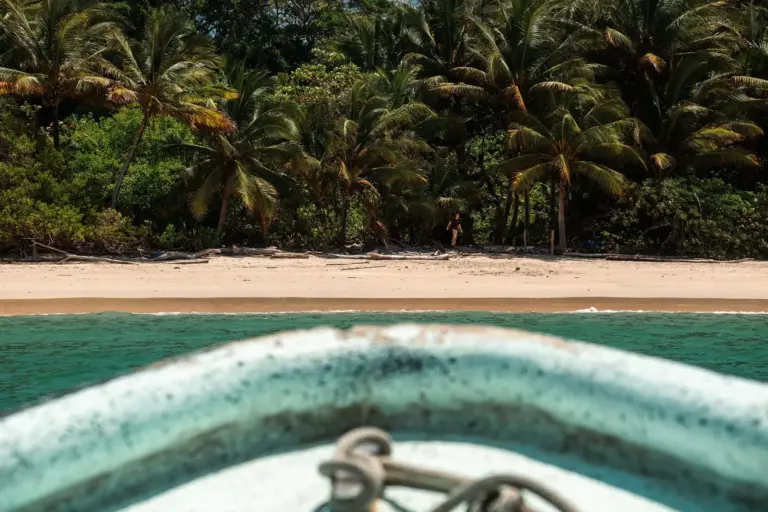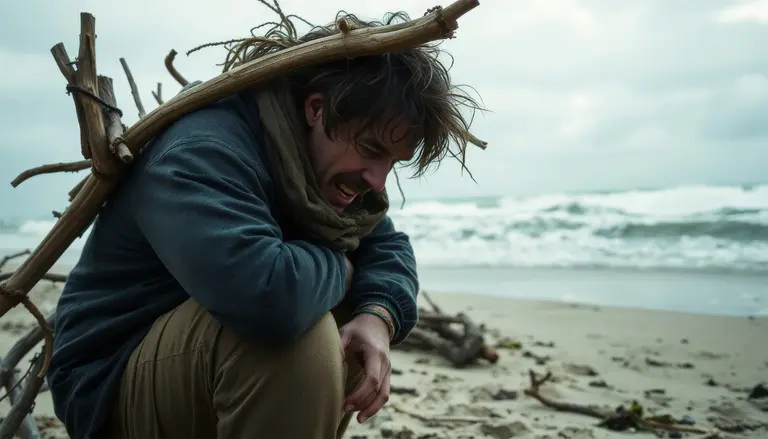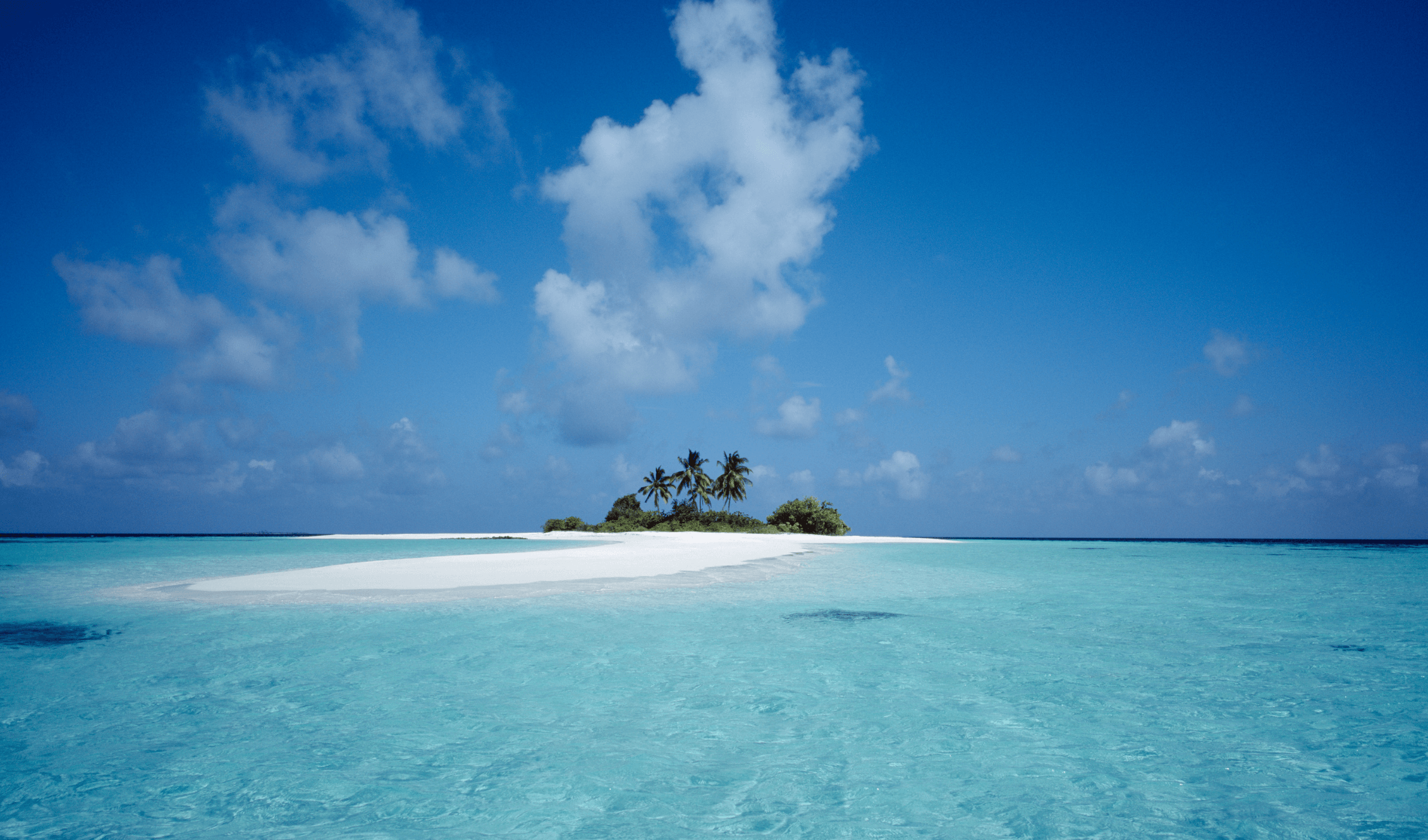
The Maldives Beyond Honeymoons. Adventure Meets Paradise
When you think of the Maldives, you probably picture white-sand beaches, luxury resorts, and turquoise waters lapping gently beneath overwater villas. It’s a honeymooner’s paradise. A place to unwind, sip cocktails, and do absolutely nothing. A place where the coral reefs are still thriving, the marine life is incredible, and survival isn’t just a story—it’s the real deal.
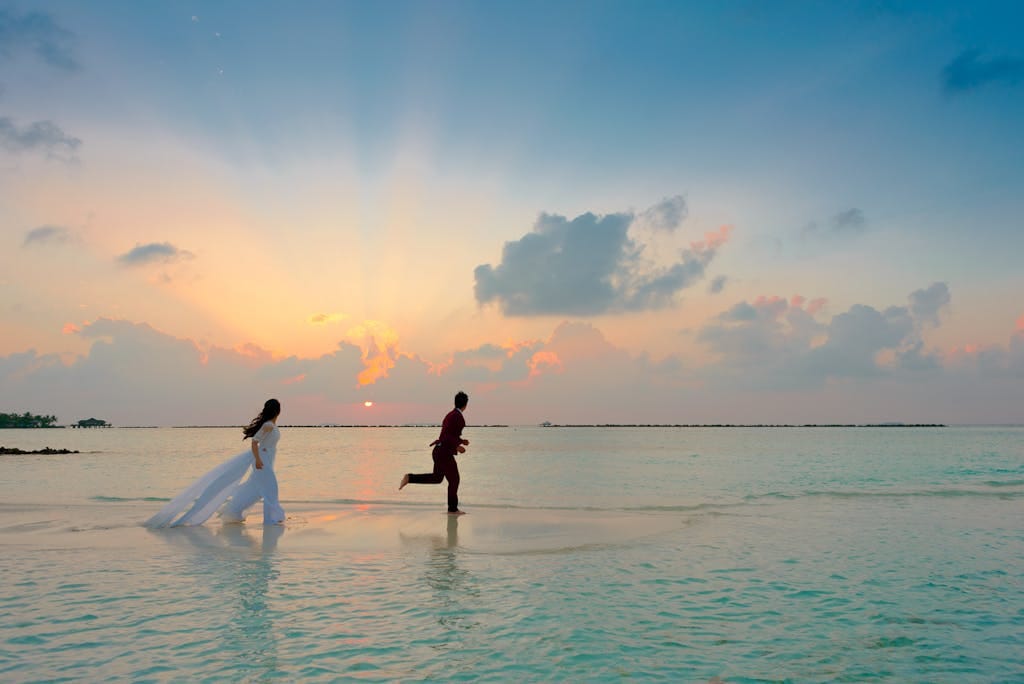
But that’s not the Maldives we found.
In January, I left Europe to go island scouting. The goal? Find the perfect desert island for our next survival adventure. I’ll admit, I wasn’t expecting much from the Maldives. Too polished, too crowded, too… brochure-ready.
How wrong I was.
We’ve run survival expeditions around the world, but our new adventure in the Maldivian archipelago? It’s next level.
Here’s what makes this the ultimate trip for adventurers craving more than luxury.
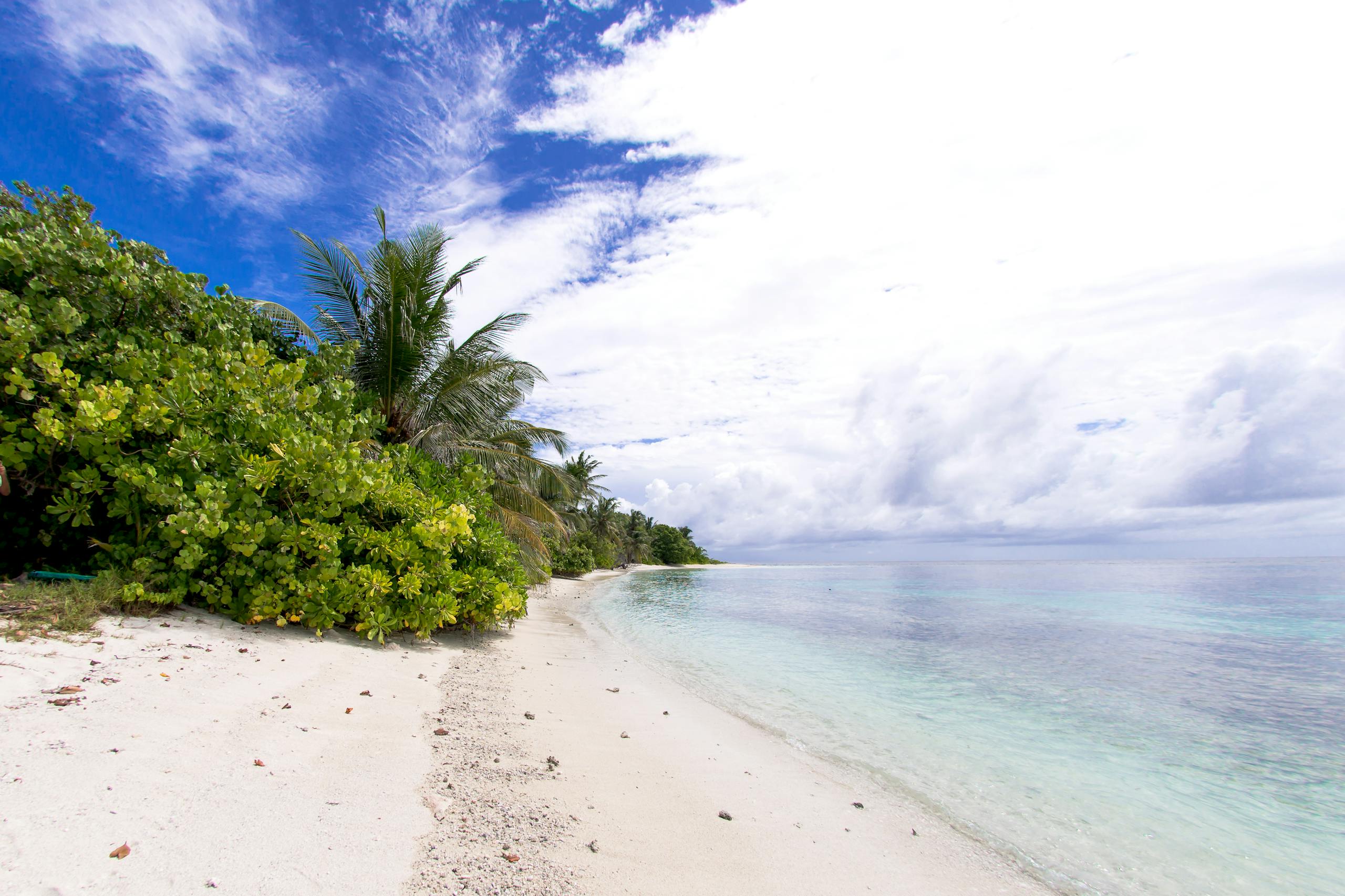
1. The Side of the Maldives You’ve Never Seen
Within hours of arriving, we were told we were the first tourists to stay on our base island in eight months. This wasn’t mass tourism. This was untouched wilderness, welcoming locals, and an archipelago hiding more secrets than I ever imagined.
Of the 250 islands that make up this ancient volcanic atoll—only 20 are inhabited. That leaves hundreds of uninhabited islands to explore. And that’s exactly what we did.
Over the course of a week, we visited nine islands. Some were wild, resource-rich, and full of promise. Others were too inaccessible or not quite right. But two of them stood out—and they’re now part of what will be our first-ever dual-island survival expedition.
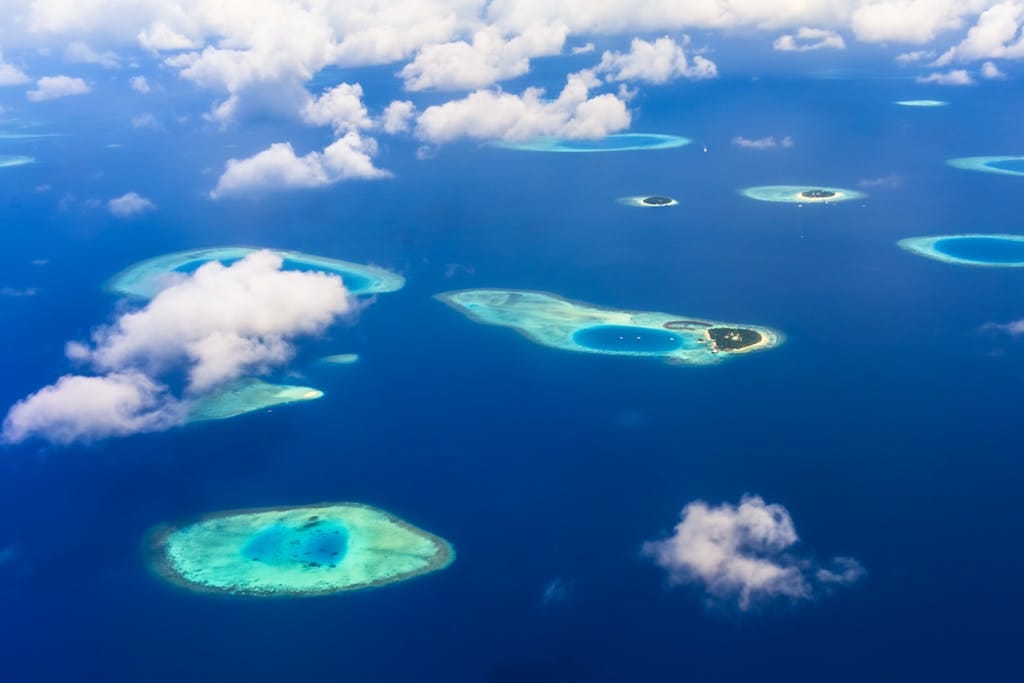
2. Two Islands. One Survival Mission.
This is our first-ever two-island survival expedition. You’ll split your time between two very different environments—one for training, the other for the real test.
Island One: Learn to Survive
Your journey begins on the outer edge of the atoll, where you’ll train with local Maldivian guides. Over five days, you’ll cover:
- How to build a shelter using native saplings
- Fire-making techniques without matches
- How to find food in the wild, including spearfishing, foraging, and fishing with traditional tools
- Techniques for collecting and purifying fresh water
This part of the trip is intense, but structured. You’ll sleep in hammocks, cook what you catch, and learn from locals who know these islands like the back of their hand.
And the marine life? Unbelievable. During scouting, we swam alongside manta rays, spotted reef sharks, and watched spinner dolphins follow our boat. The coral reefs here are still vibrant—something that’s sadly rare these days.
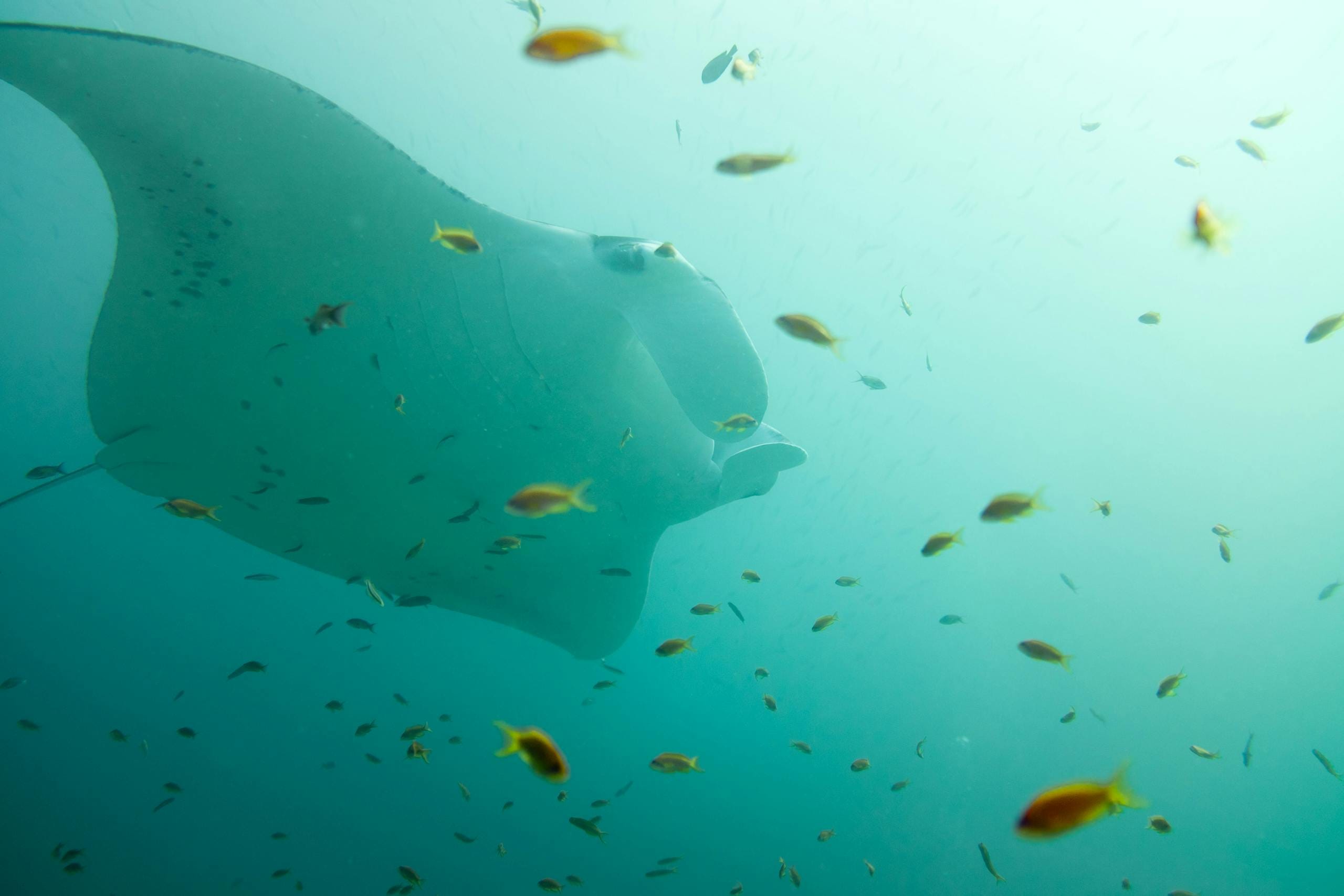
Island Two: The Survival Phase
Now comes the test. You’ll be dropped off on a completely uninhabited island with nothing but your kit: machete, knife, fishing gear, and a satellite phone for emergencies.
No one to cook your food. No bed. No back-up plan. Just your fellow castaways, your training, and your instincts.
This is real island survival, and it’s not for everyone. But if you’re ready to disconnect, challenge yourself, and earn the experience of a lifetime, there’s nothing like it.
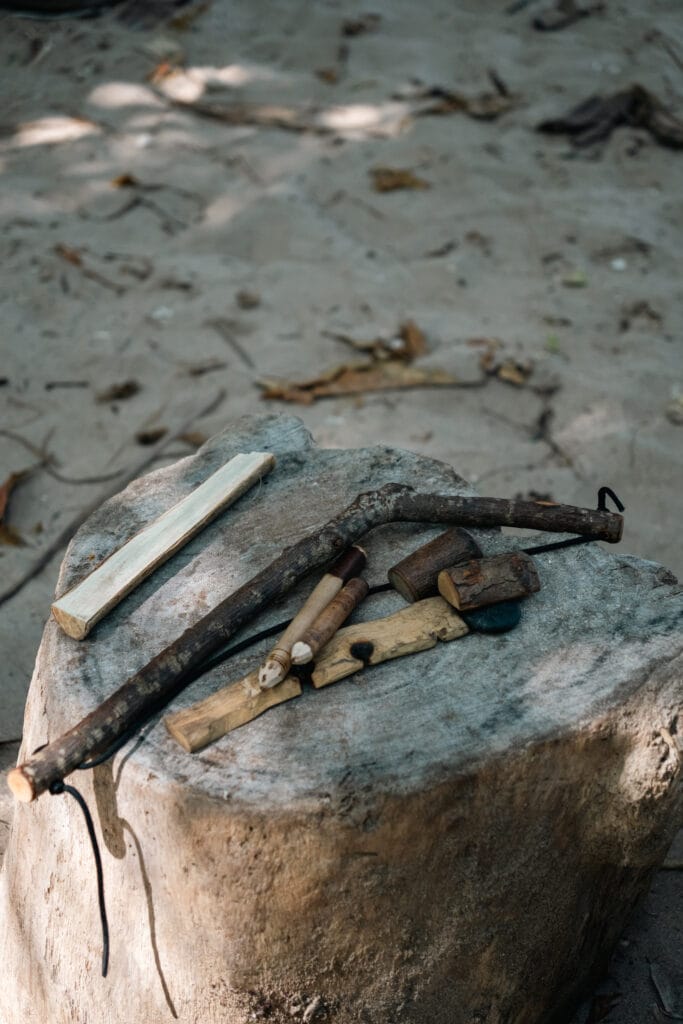
Want to See What Survival in the Maldives Really Looks Like?
Before you pack your bags, check out Joe Jazer’s YouTube film, where he documents 5 days marooned on a remote island in the Maldives. No hotel, no crew—just a man, a machete, and the will to figure it out. And a invisible safety net.
Watch it, then ask yourself: Could you do the same?
3. Marine Life at Its Best
One of the things that makes the Maldives adventure truly stand out is the marine life. Thanks to long-standing environmental protections, these waters are full of life.
You’ll see:
- Manta rays gliding past coral drop-offs
- Whale sharks (seasonal, but possible—especially in the South Ari Atoll and near Hanifaru Bay)
- Reef fish in technicolor schools
- Turtles, dolphins, and if you’re lucky, even eagle rays
And it’s not just about spotting them from a boat. You’ll snorkel these waters daily, and for experienced divers, we’re close to some of the best dive sites in the Indian Ocean—including Banana Reef, Manta Point, and Ari Atoll dive sites.
4. A Journey That Ends in Luxury
After eight nights on a desert island, sleeping under the stars and living off the land, we add one final twist:
A speedboat transfer to an all-inclusive overwater bungalow.
That first hot shower? Pure magic. The buffet? You won’t believe how good food tastes after cooking over fire for days. And the bed? Let’s just say you’ll never take a mattress for granted again.
This final night is about contrast. You’ve earned this luxury. And it hits differently after everything you’ve been through.
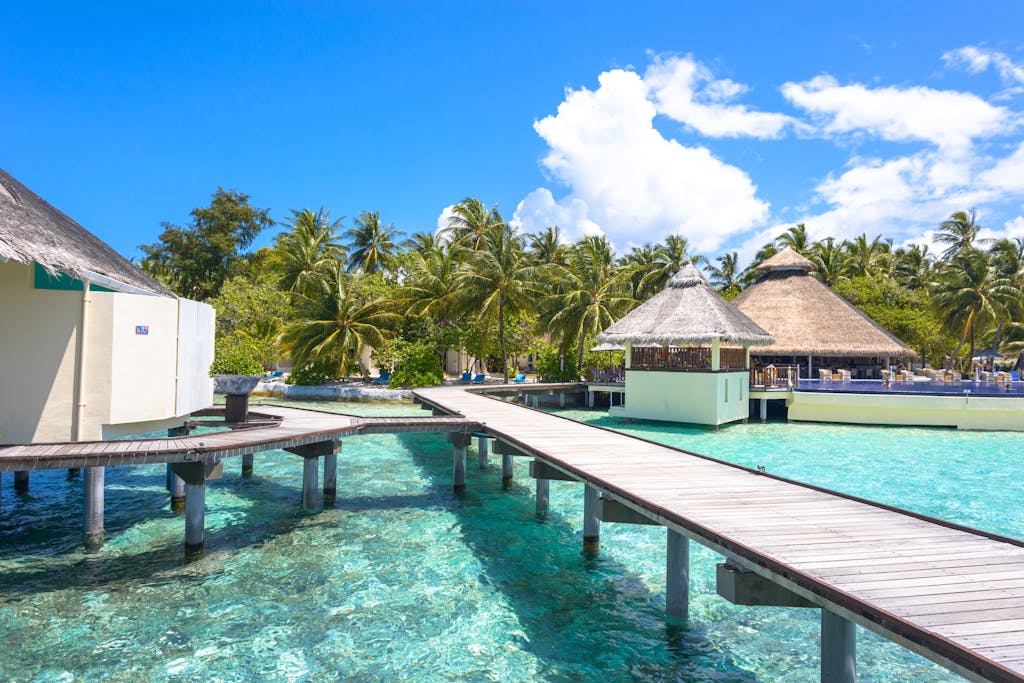
5. A Real Connection with Local Life
We’re not a tour operator running cookie-cutter Maldives tours. Our trips are personal, purposeful, and grounded in local culture.
You’ll be guided by locals who’ve lived on these local islands for generations—not just to survive, but to thrive. They’ll teach you how to fish at night, where to find shelter from a storm, and how to live off the ocean with respect.
It’s the kind of cultural experience no resort island can give you.
Why This Island Was So Hard to Find
We don’t just pick any tropical island and drop people off. For us, the perfect survival location has to pass all of these:
- Beautiful – It has to feel like paradise, because you’re going to work for it
- Remote but reachable – Emergency access within an hour
- Rich in resources – Coconuts, fish, and drinkable water
- Uninhabited, with no modern structures or sea walls
- Free from real threats (no pit vipers, pirates, or tropical storms)
- Sustainable and legal to operate on
We’ve been scouting islands for seven years. This one? It ticks every box—and then some.
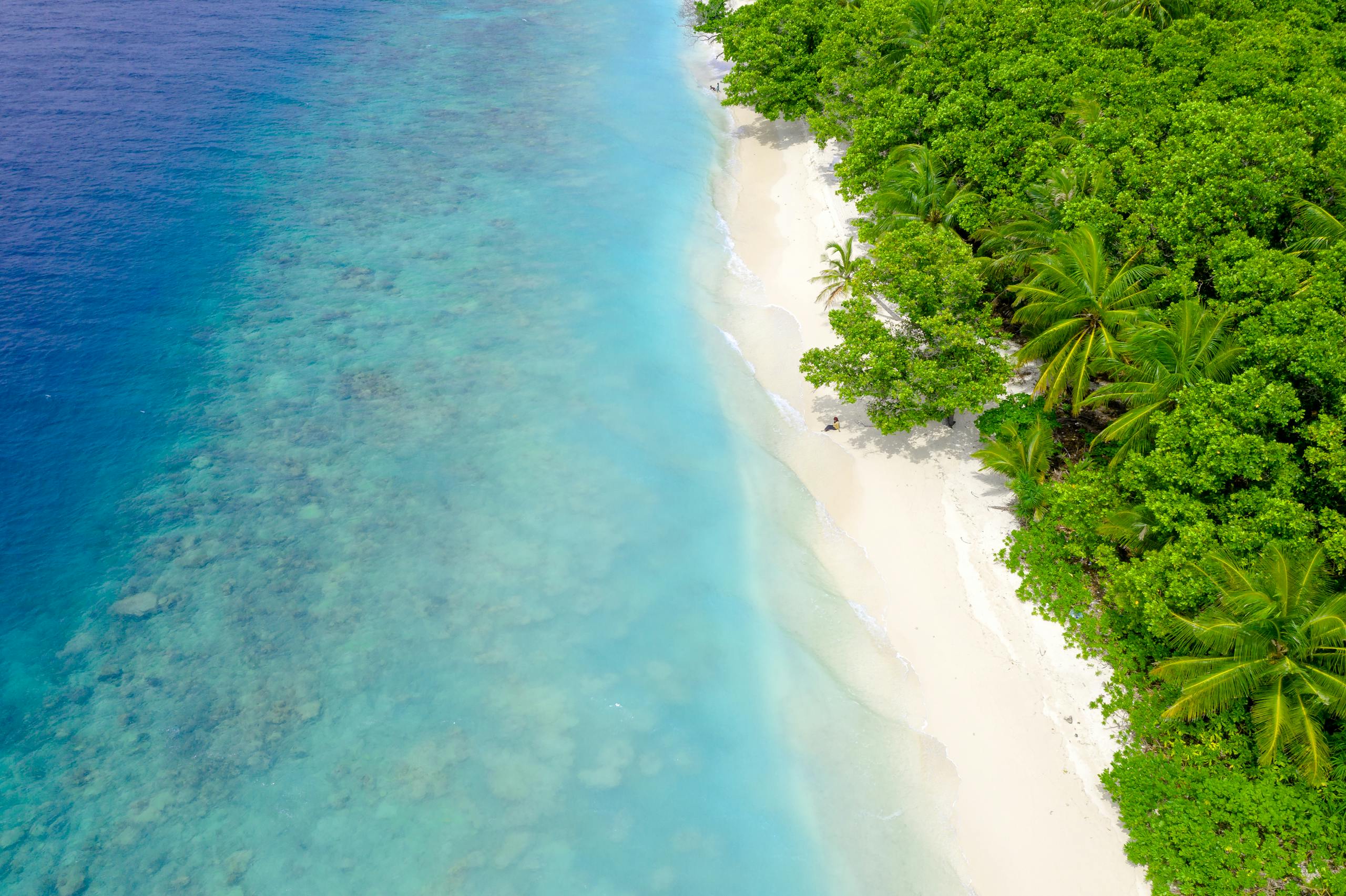
Ready for a Different Kind of Trip?
This is not about proving how tough you are. It’s about experiencing something real. Something stripped back. A Maldives trip that reconnects you with the natural world and your own resilience.
You’ll wake up to the sound of waves on the shore, explore coral reefs, share meals around a fire, and survive in one of the most beautiful places on Earth. Are you ready to join us?


